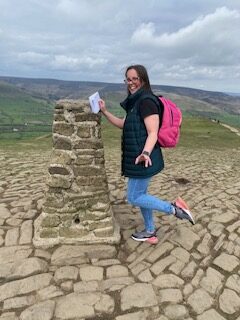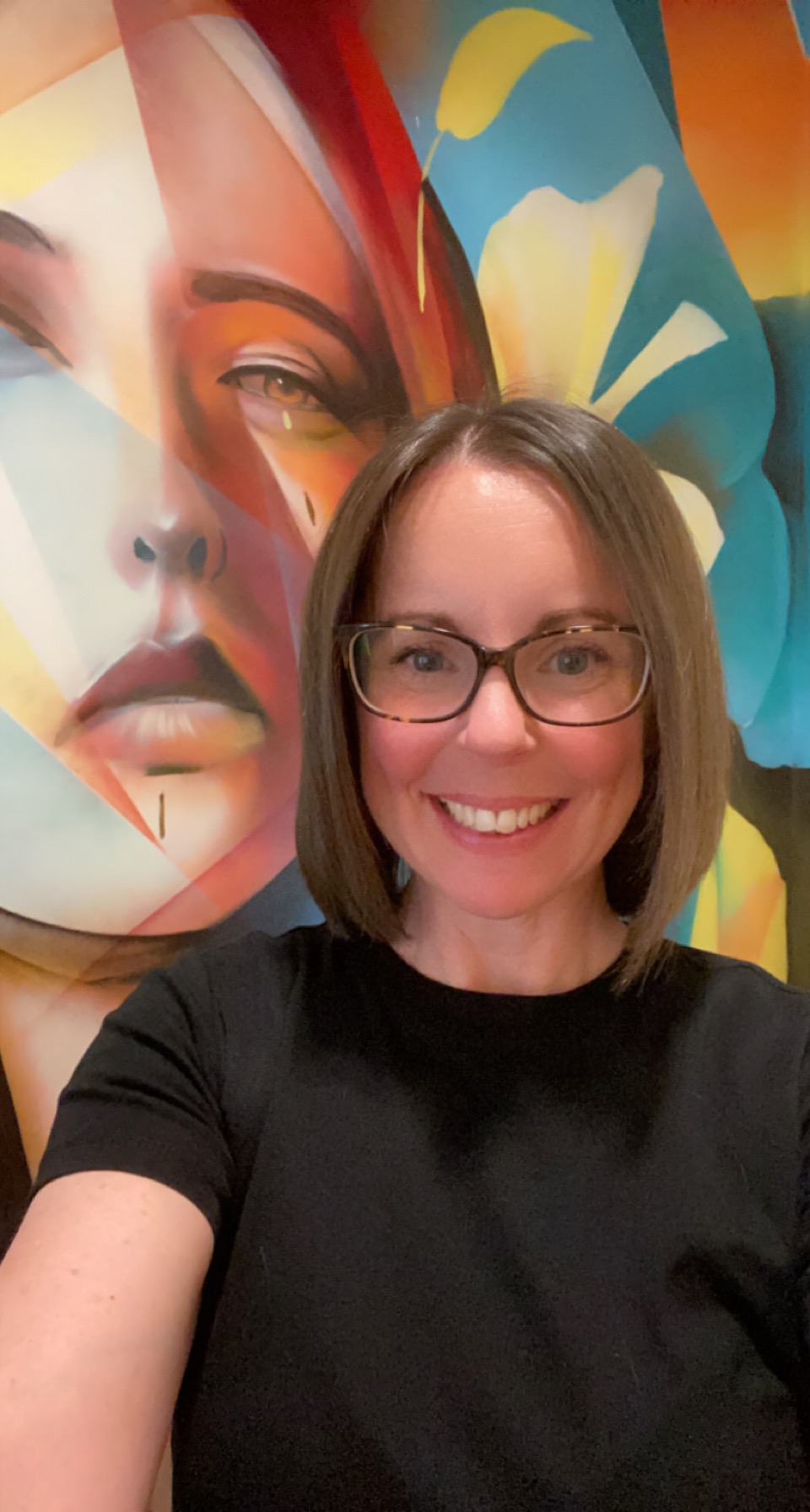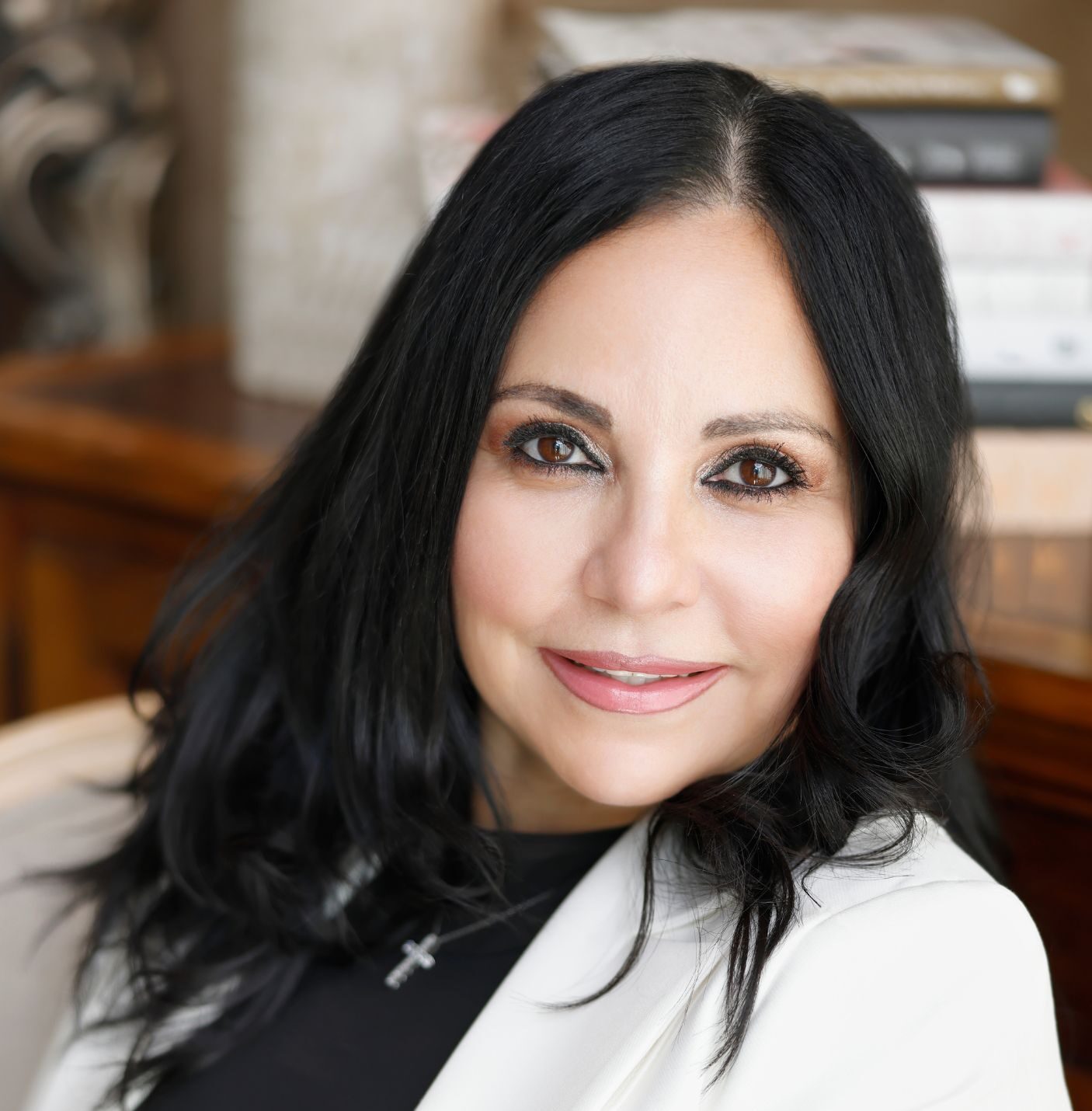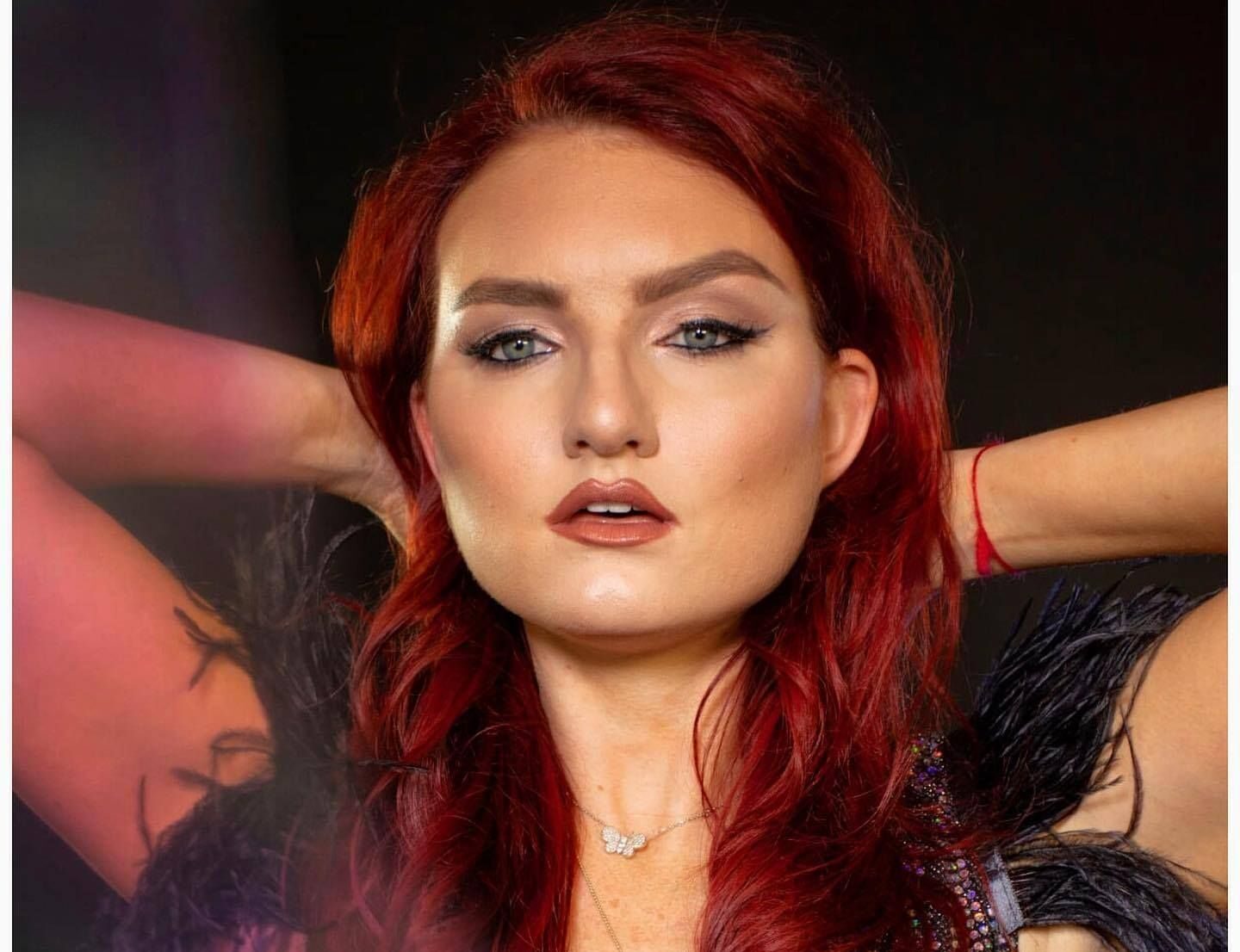INNOVATOR, EDUCATOR, AND ADVOCATE FOR MENOPAUSE EMPOWERMENT
By JULES LAVALLEE
Vicky Mose is the visionary founder of Imagine How…, a pioneering organization transforming menopause awareness and support. With a rich background in psychology and health & fitness, Vicky has redefined how individuals and workplaces approach this pivotal life phase. Inspired by her own menopause journey, she created Imagine How… to educate, inspire, and empower women, workplaces, and allies to navigate menopause with confidence and compassion.
Through her groundbreaking work, Vicky is dismantling menopause misconceptions and building a culture of awareness and action. Her people-first, can-do ethos fosters understanding, safety, and inclusion—creating environments where individuals thrive and organizations flourish.
Vicky collaborates with forward-thinking organizations to craft tailored strategies that enhance retention, productivity, and wellbeing, addressing the unique needs of women aged 40-64, the fastest-growing demographic in today’s workforce.
Her one-of-a-kind mentoring program offers individuals a personalized roadmap to menopause mastery, blending empathy and expertise to deliver transformative results.
An engaging and dynamic speaker, Vicky delivers impactful talks that spark conversation, break taboos, and inspire action. Her dedication to reshaping the menopause narrative empowers people to approach this phase with confidence and clarity.
Join Vicky Mose and Imagine How… in championing a new era of understanding, inclusivity, and empowerment for individuals and organizations alike. Together, let’s change the narrative and unlock the potential of thriving through menopause.

Imagine How is a pioneering organization transforming menopause awareness and support. Share your background and what led your passion to help women.
I spent about three years feeling like a shadow of myself. My confidence had plummeted, I was overwhelmed by stress, especially in crowded spaces, and I often found myself in tears. I thought I was simply failing to cope with life until a friend recommended a documentary about menopause. That was my lightbulb moment—I realised I was in perimenopause.
At first, HRT felt like a miracle. But after six months, I noticed I needed more to truly manage my symptoms and regain control. That’s when I began researching and developing what I now call my “mastery approach.” This journey became the foundation of Imagine How. I don’t want anyone else to lose vital years feeling out of control or as though their confidence has disappeared—because with the right tools and support, it can absolutely be managed.
What really propelled me to start Imagine How was experiencing debilitating anxiety during perimenopause. It became so overwhelming that I felt I had no choice but to step away from my senior leadership role in education. Sadly, even today, despite growing awareness of menopause, there’s still a gap in outcome-focused support for workplaces. In my case, I was directed to the Employee Assistance Programme (EAP), which, while useful, didn’t work collaboratively with my employer to create a plan that would enable me to stay in my role. Too often, workplace solutions feel superficial and don’t address the core issues that help people truly thrive.

It might seem counterintuitive to launch a business while battling anxiety, but it was precisely that challenge that set me on the path to create my holistic approach to menopause mastery. It not only supported my own recovery but also gave me a powerful sense of purpose. My vision is simple: Imagine how great it will be when the next generation sails through menopause with confidence. My ultimate aim? To make myself redundant by ensuring the support women need is universal, accessible, and effective.
There’s no magic fix for menopause. Take us through how you are helping clients today.
You’re absolutely right—there’s no one-size-fits-all fix for menopause. But there is so much that can be done to regain balance and feel empowered. It starts with understanding your symptoms, identifying the situations or triggers that make them worse, recognising the times in your cycle when you need extra support, and learning how lifestyle factors—like exercise, nutrition, sleep, stress management, HRT (if it’s right for you), and a strong support network—can make a real difference.
My mentor sessions are designed to help clients create their own Menopause Mastery Plan. By tracking symptoms, sleep patterns, and stress levels, we work together to explore what’s effective for them, the options available, and how to access the right support. We then develop a personalised action plan tailored to their needs. The aim is to empower clients to manage their menopause with confidence, often requiring no more than two sessions and occasional check-ins to refine their plan. It’s about equipping them with the tools to maintain their own sense of balance and well-being.
In the workplace, my focus is on helping organisations create outcome-based plans that foster real change. This might include using pre- and post-training questionnaires to measure shifts in awareness and understanding, developing holistic menopause action plans that consider everything from temperature control to uniforms, and training in-house menopause mentors to provide ongoing support.
For me, this work is not about selling training—it’s about driving a cultural shift. The goal is to ensure menopausal people are genuinely supported in their workplaces and that these interventions lead to lasting change. I want to create environments where individuals can thrive, knowing they have the understanding and resources they need to succeed.
What are some of the misnomers?
One of the biggest misnomers about menopause is age. While the average person begins to experience perimenopause around 45, many face symptoms much earlier. This often leads to confusion and a delay in seeking support because they don’t associate their experiences with perimenopause. One of my missions is to raise awareness among Millennials. A recent Global News article for World Menopause Day highlighted that while this generation has access to vast information, they often overlook perimenopause due to generalized age ranges and misconceptions, dismissing symptoms as the result of a busy lifestyle.
Perimenopause is the stage leading up to menopause, menopause is officially marked by 365 days without a period. On day 366, a person is considered postmenopausal. However, perimenopause can begin as much as 14 years earlier, meaning it’s possible to experience symptoms in your 30s—especially when the average age of menopause for white women is 51. Ethnicity also plays a significant role; research like the SWAN study reveals that Black and Asian women tend to enter perimenopause earlier than white women. Despite growing awareness of menopause, there’s still a lack of understanding around these age variations and how symptoms can manifest differently across individuals.
Another common misunderstanding is the range of symptoms. Menopause is often associated with hot flashes and brain fog, but the reality is much broader. Many of my clients are surprised to learn that psychological symptoms—like panic attacks, anxiety about driving, or nervousness in social situations—are linked to menopause. Similarly, lesser-known physical symptoms, such as frozen shoulder or recurrent UTIs, often go unmentioned.
For example, I recently worked with a client in her late 30s who felt increasingly anxious about public speaking—a skill she’d previously excelled in. After tracking her symptoms, it became clear this was part of her perimenopause journey. Through personalized strategies, including lifestyle adjustments and workplace advocacy, she regained her confidence. Another client, experiencing chronic shoulder pain, was relieved to learn this could be connected to hormonal changes. By working together, she was able to access the right support and resume activities she loved.
Dispelling these misnomers is at the heart of my work. Raising awareness about the true scope of menopause and equipping people with the knowledge and tools to navigate it can transform lives—and that’s what Imagine How is all about.

How are you revolutionizing the health and workplaces for menopausal women?
My programs are all about outcomes. For individuals, my mentorship approach helps clients create a personalized Mastery Plan through just a couple of one-to-one sessions. From there, we stay in touch to adapt the plan as their journey evolves—because what works today might not work in a few months. The tracking tools I provide ensure clients stay independent, empowered, and in control of their menopause experience.
In workplaces, it’s about transforming cultures and equipping organisations with the right tools to create safe, supportive, and progressive environments where menopausal employees can thrive. Women aged 45-64 are the fastest-growing demographic in the workforce, and the business case for retaining and attracting this group is undeniable. Improved productivity and reduced employee turnover speak for themselves when businesses implement effective menopause action plans.
These plans need to be holistic and strategic, starting with buy-in from senior leadership. Without executive-level support, initiatives like menopause groups or informal hangouts, while well-meaning, are unlikely to drive meaningful change. It’s crucial to recognise the vital contributions of women in their 40s, 50s, and 60s—and the stark reality that 23% of menopausal employees consider leaving their jobs every year. When leadership understands the business case, they’re more likely to invest in bespoke solutions that align with their organisational goals.
Every business is unique, and so is its workforce, which is why a one-size-fits-all approach won’t work. My mission is to help companies craft tailored menopause action plans that genuinely address their needs. By fostering inclusive, menopause-positive workplaces, we not only support employees but also reverse the troubling statistics and unlock the full potential of this valuable demographic.
Through my work, I aim to revolutionise the workplace—empowering individuals, changing cultures, and demonstrating that supporting menopausal employees isn’t just the right thing to do; it’s the smart thing to do for businesses and their people.
What has been your greatest inspiration during your journey?
The greatest inspiration on my journey has undoubtedly been the honesty and bravery of the menopausal people I’ve worked with. Seeing their willingness to share their stories, confront challenges, and embrace change has been profoundly moving. At Imagine How, everything we do is built around our core values of TIME: Transformative, Impactful, Meaningful, and Empowering. Watching a client become empowered by knowledge and seeing that transformation ripple through their life and the lives of those around them is what fuels my passion every day.
I also draw inspiration from my own journey. Finding my formula to manage menopause not only gave me back my confidence but also empowered me to start this business. After years of self-doubt and feeling lost, I’m reminded daily of the incredible capacity we have as individuals to unlock our own development and happiness.
That doesn’t mean I’m happy or have everything figured out 24/7—far from it! Menopause is a journey, and like many others, I still face challenges. But the impact of applying what I’ve learned and paying that forward is a constant source of motivation. Knowing that I can help others reclaim their lives and embrace their potential is what keeps me inspired.
Share your mission for 2025.
In 2025, my goal is to broaden my impact and shift the global perspective on menopause. Menopause isn’t just a “women’s issue”; it’s a universal life stage that affects everyone, directly or indirectly. While women and trans men experience menopause—making up approximately 51% of the population at some point—the ripple effects go far beyond. By 2030, the global population of menopausal and postmenopausal women is projected to reach 1.2 billion, with 47 million new entrants each year.
The more people understand how menopause presents and what can be done to navigate it, the less likely we are to see women leaving the workplace during this critical stage of life. Beyond the workplace, greater awareness among partners, children, and friends can significantly reduce relationship breakdowns. Currently, studies show that 73% of women cite menopause as a primary factor in the breakdown of their marriages. This statistic is a stark reminder of the broader social and emotional impact of menopause when left unsupported.
If, in 2025, I can move the dial—helping more people shift from misunderstanding and frustration to empowerment and understanding—I’ll know I’m on the right track. My mission is to reverse the negative impacts of menopause and create a world where people feel informed, supported, and capable of thriving during this life stage. It’s an ambitious goal, but with each step forward, I’m reminded of the power of awareness and collective action to drive meaningful change.











